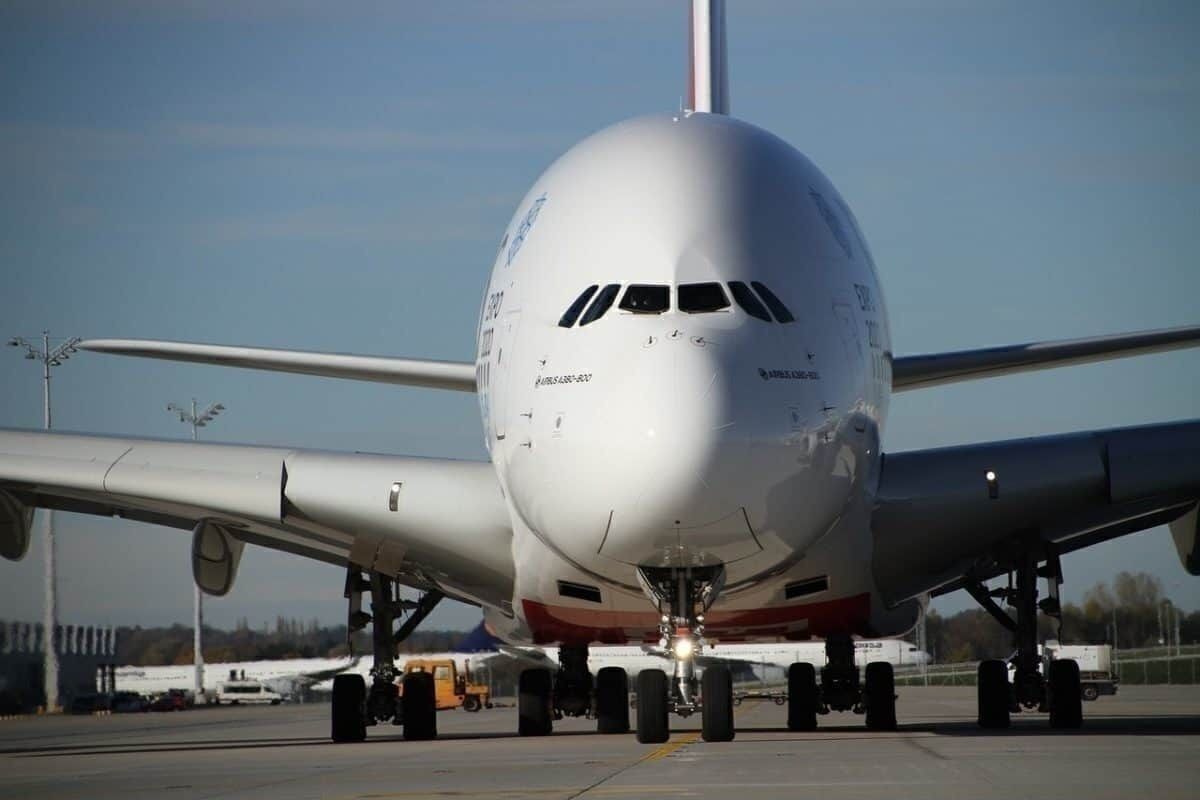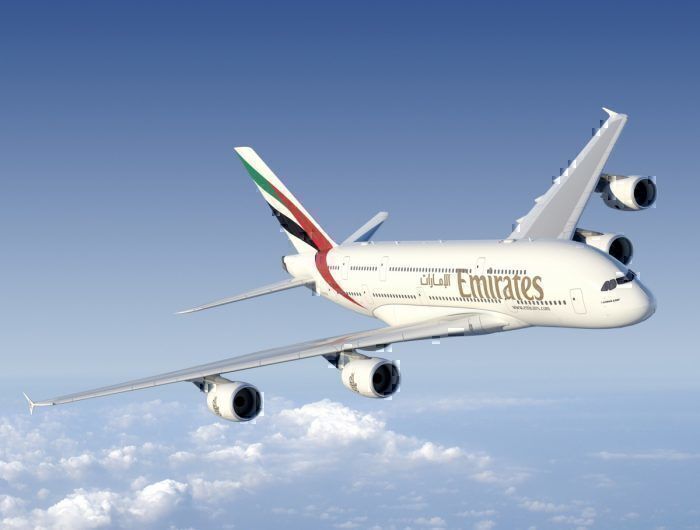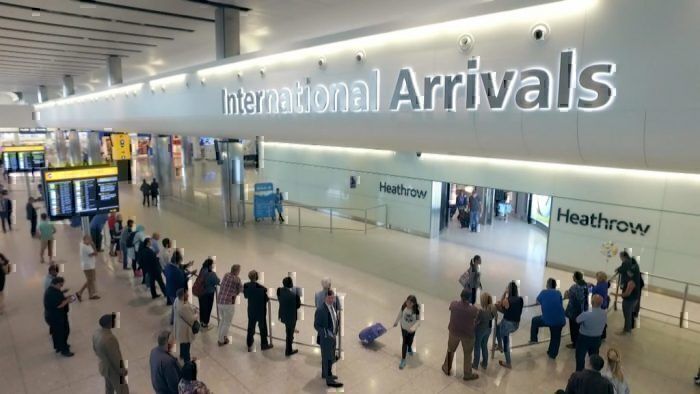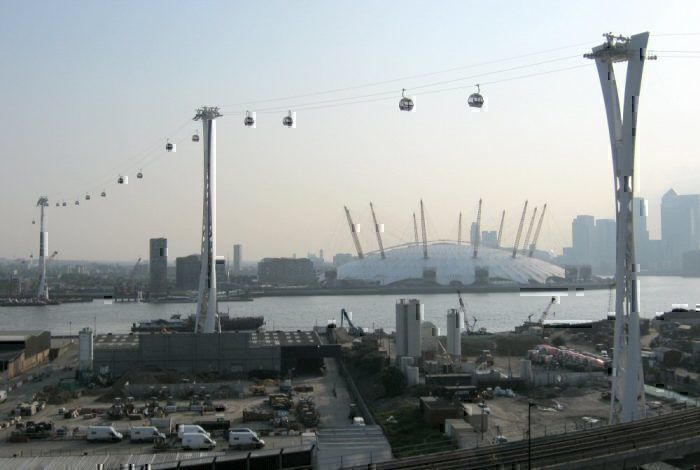CEO of Emirates Airlines has revealed in an interview just how important the UK is to the Dubai airline. According to Tim Clark, the UK makes up more than a quarter of Emirates’ capacity and is responsible for 56% of its European profits. While Clark notes the market is still growing year on year, he warns that airports must do more to ensure infrastructure can keep up with demand.
According to an interview Flight Global conducted with Tim Clark, the UK makes up 26% of Emirates’ total capacity. In recent years, it’s been growing at a pace of around 6 to 7% each year. In the interview, Clark said,
“The UK is a really, really strong story for Emirates and continues apace. It provides 56% of our total profit from our European operations,”
Most profitable market
The UK is one of the most profitable markets for Emirates. According to the Flight Global interview, the 26% capacity Emirates flies to the UK is responsible for 56% of its total profit from Europe. Clark says that, of its external network, it is the most profitable. OAG agrees, pegging the Dubai-London route at a value just short of $800m a year.
And the market is still growing. Clark noted consistent growth in capacity, growth in profits and growth in points served over recent years. Just this July, Emirates added a second service to London Stansted, a route which it says is operating at a load factor of 95%.
Heathrow, with its six A380s a day services, is also securing a load factor in the 90’s, as is Gatwick. Manchester, Birmingham, Glasgow, Newcastle and Edinburgh are all reportedly performing well too. Clark describes the UK as a ‘hugely potent route’, saying that out of more than 160 points it flies to, the UK and in particular London remains the most popular choice.
More to be done at airports
Clark noted that airports in the UK have been doing much to improve infrastructure and to boost capacity to attract more airlines. He noted with interest Birmingham’s recent runway extension, as well as improvements at the terminal which have boosted footfall from nine million to around 13 million each year. However, he says more still needs to be done.
In the Flight Global interview, Clark said,
“All the airports are going to have to do quite a lot with regard to what I see as demand for the United Kingdom. The more they can do, with regard to capital infrastructure spend, the more airlines will come.”
In particular, he said, Emirates is keenly eyeing the progress with London Heathrow’s third runway, and how the terminal will be developed to support that. Clearly, Emirates would like to have more slots at Heathrow, and at other airports too.
However, he said he doesn’t see the outcome of current political difficulties having a massive impact on aviation. He said that the UK, for all carriers, is one of the most profitable routes, and he doesn’t see Brexit changing that. He said,
“The notion that going forward, whether we’re in the EU or out of the EU, that there will be a collapse of demand to the UK, the evidence suggests otherwise.”
Emirates and the UK
Emirates has a long and fruitful history with the United Kingdom. The Dubai airline has been flying into the UK since 1987, when a deal was struck to begin service to London’s Gatwick Airport. In 1990, the airline added Manchester to its network, continuing its expansion despite the rumbling conflict in the Middle East. In 1991, the airline finally secured a slot at London Heathrow
With a great deal of importance placed on the UK, Emirates has chosen the nation to be a platform for some of its most important milestones. When Emirates took delivery of its first Boeing 777-200 in 1996, the first place it flew to was London. Emirates very first order for the Airbus A380, the first airline to order the giant jumbo, was made in the UK, at the 2000 Farnborough Air Show.
By 2014, all five Heathrow services were operated by A380s and Emirates became the first airline to offer A380 service at London’s Gatwick airport. In the same year, Heathrow was knocked from its perch as the world’s busiest airport, to be replaced with Dubai.
But it hasn’t been all take, as the carrier has given a lot back to the UK too, in particular in London. In 2001, Emirates struck a deal worth £24m to sponsor London’s Chelsea football club, then in 2004 it signed for a £100m deal with rival London club Arsenal, including naming rights to its new stadium. And then there’s the Emirates Air Line; a Dubai funded cable car that spans the width of the Thames.
Today, Emirates flies to eight airports in the UK; Birmingham, Edinburgh, Glasgow, London Gatwick, London Heathrow, London Stansted, Manchester and Newcastle. Clearly, the UK market is crucial to Emirates and, regardless of what the outcome of Brexit is, the Dubai carrier will be flying here for years to come.




